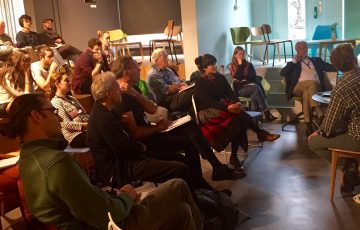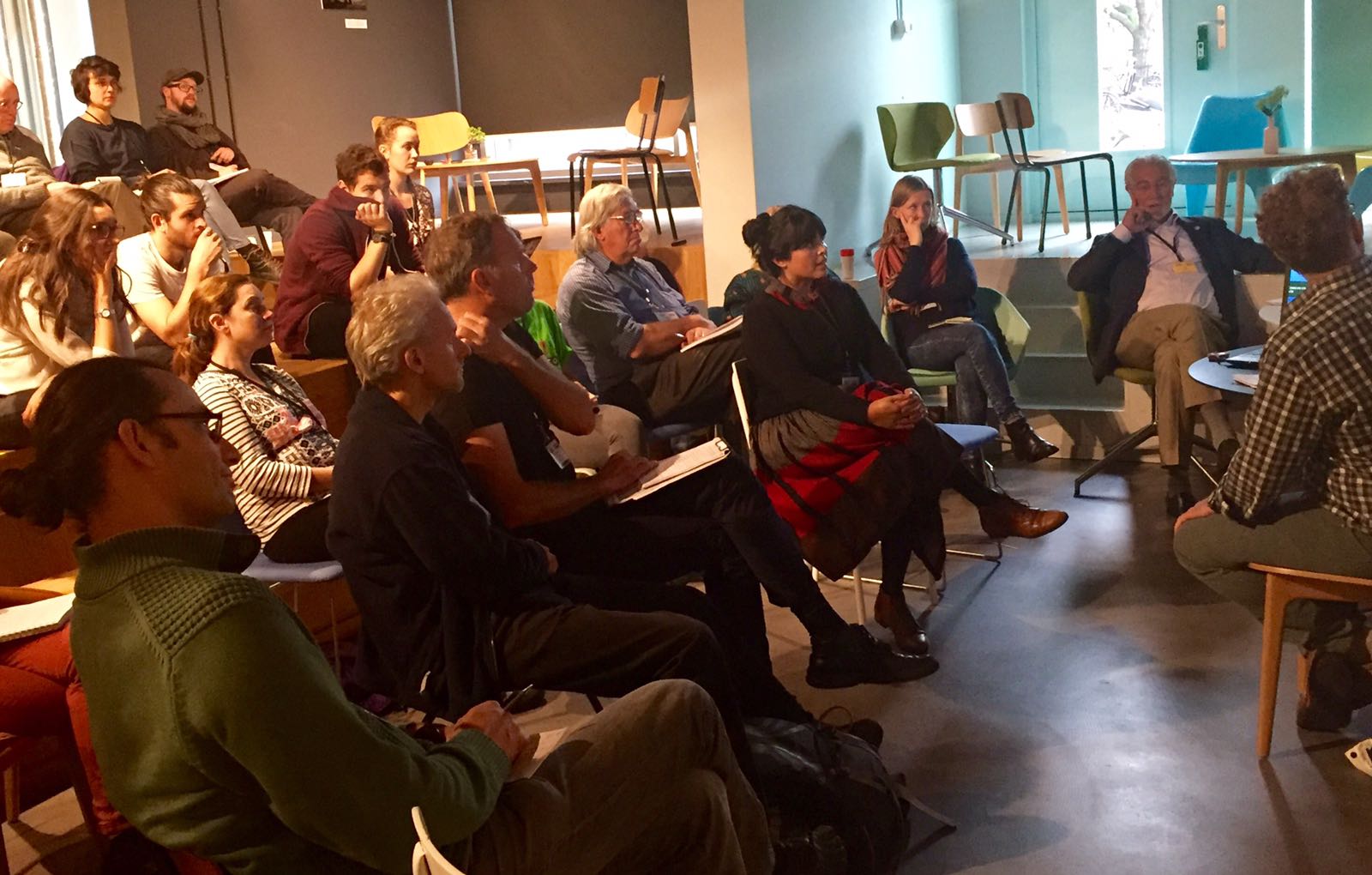The Monsanto Tribunal, held from 14-16 October in The Hague, the Netherlands, was a historic event contributing to the ongoing debate to include the crime of ecocide into international criminal law. ILEIA participated in the People’s Assembly, a side event to discuss strategies to create an alternative food system – one that is free from the power structures, inequality and environmental destruction that Monsanto represents. The social cohesion that agroecology can offer is evident.
ILEIA had the opportunity to participate in a workshop facilitated by Biovision titled, ‘Agroecology to feed the world’. The title of this workshop set the stage for a lively discussion about choosing words carefully. ILEIA was not comfortable with the title for a few reasons. Multinationals such as Monsanto talk about feeding the world. This not only reinforces the idea that we are passively being fed, but it does not challenge the industrial farming model with its irrational quest to produce higher yields at any cost. It was important to clarify that agroecology is not going to feed the world but that it provides a pathway for farmers to choose what they grow, how they grow it, and for people to choose what they eat. The political dimension of agroecology cannot be left aside.

During the workshop, much inspiration came from Argentinian farmer, Diego Fernández Bantle, who shared his family’s story about transitioning to organic. In Argentina’s agriculture industry that is dominated by agrochemical dependent farming techniques, besides overcoming technical challenges, he highlighted the need to work with other farmers, urban citizens, municipalities and researchers. How to build these types of communities ever larger and stronger became an important discussion amongst the group. Hans Herren (Biovision) made a plea for a united front amongst the movement. Other members of the audience questioned the role of certification schemes and argued that to really support agroecological practices on the ground, policy level change is needed.
There was a sense that agroecology can unite different actors working at different levels and this was reinforced by the fact that the tribunal and the people’s assembly were running in tandem. Whether setting the stage for legal reform so that Monsanto can be held accountable for its crimes or setting up a community supported agriculture scheme, the atmosphere in The Hague was inspiring. In the words of one of the organisers the success of the two parallel events were “very important steps for building a world food movement.”

